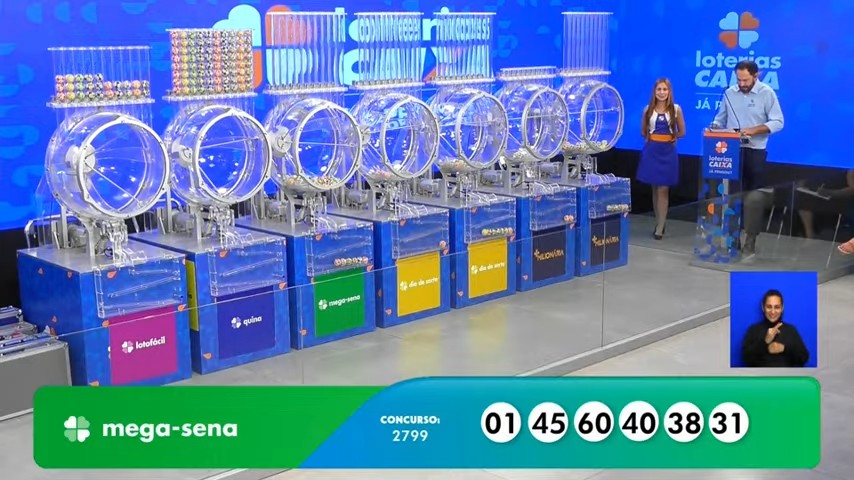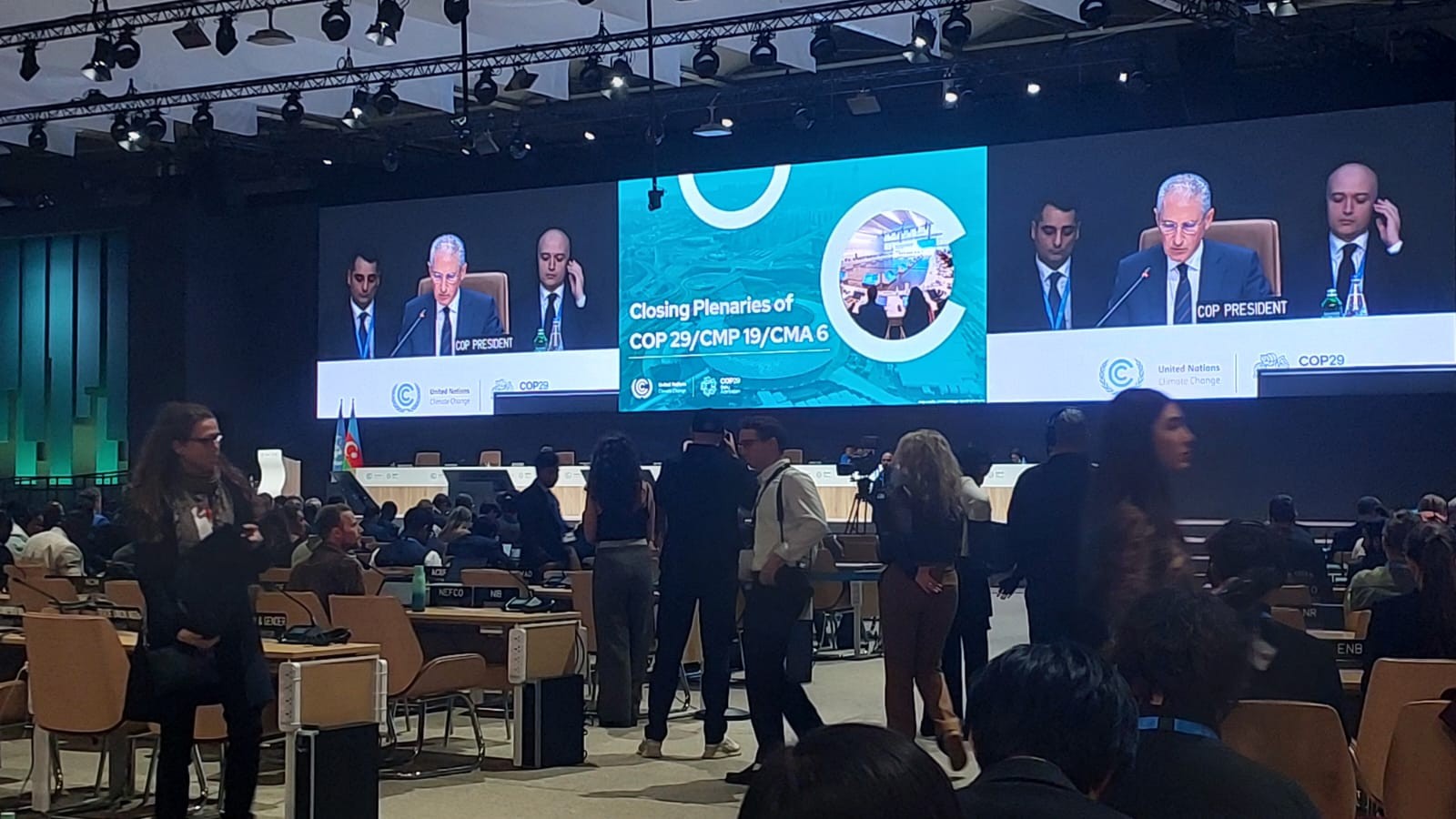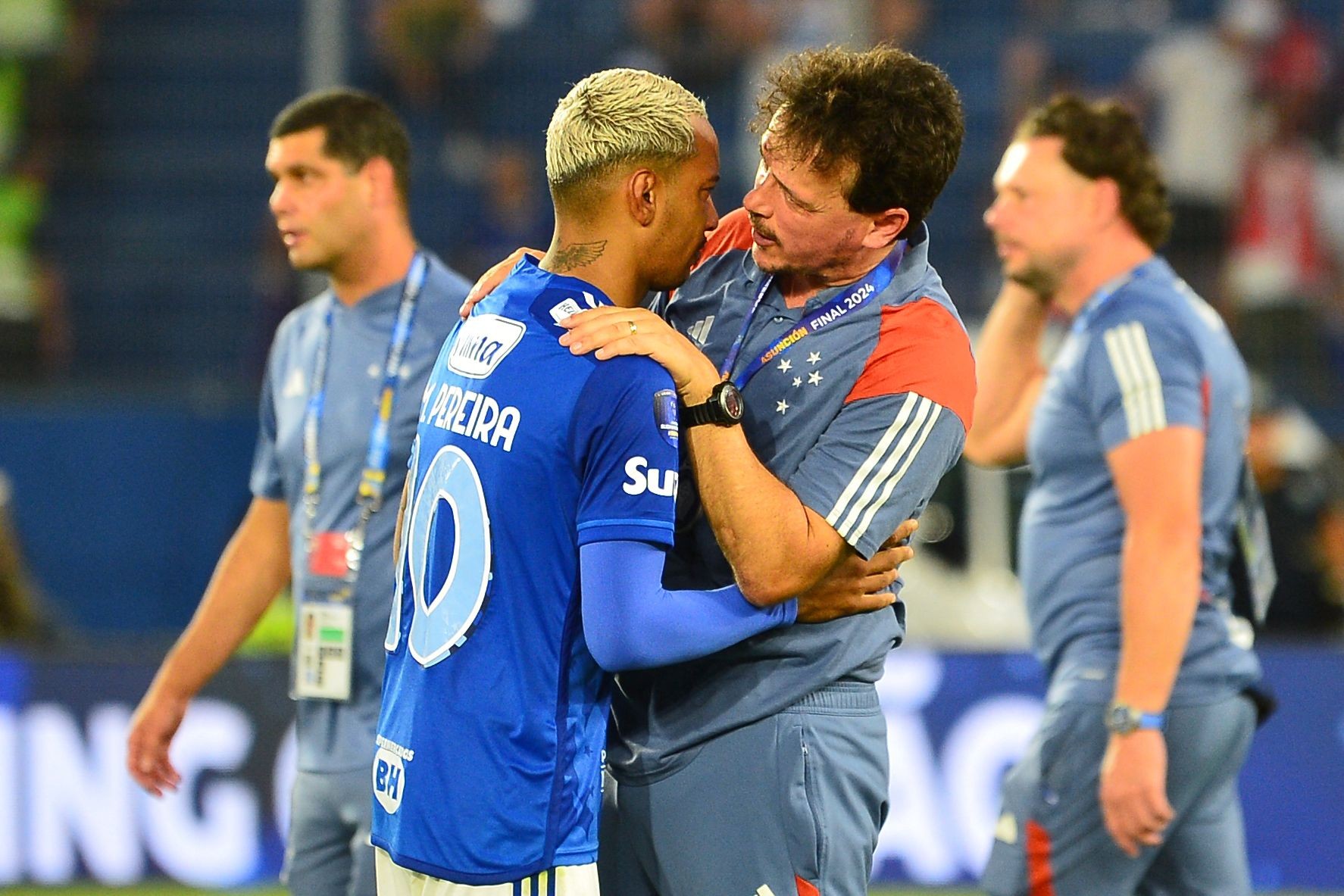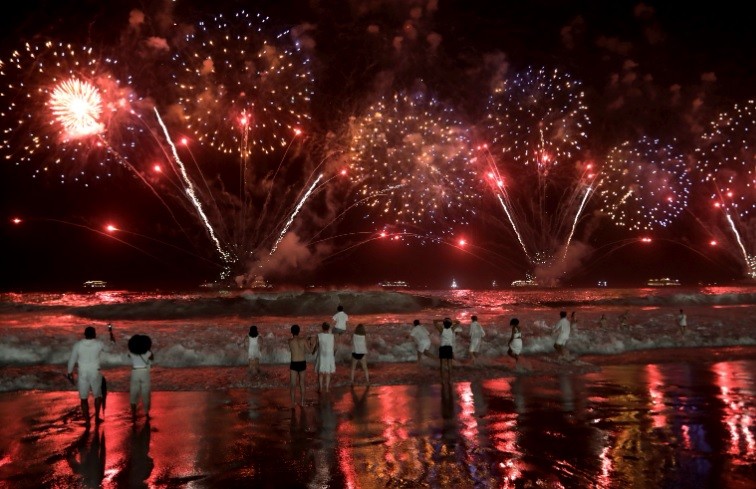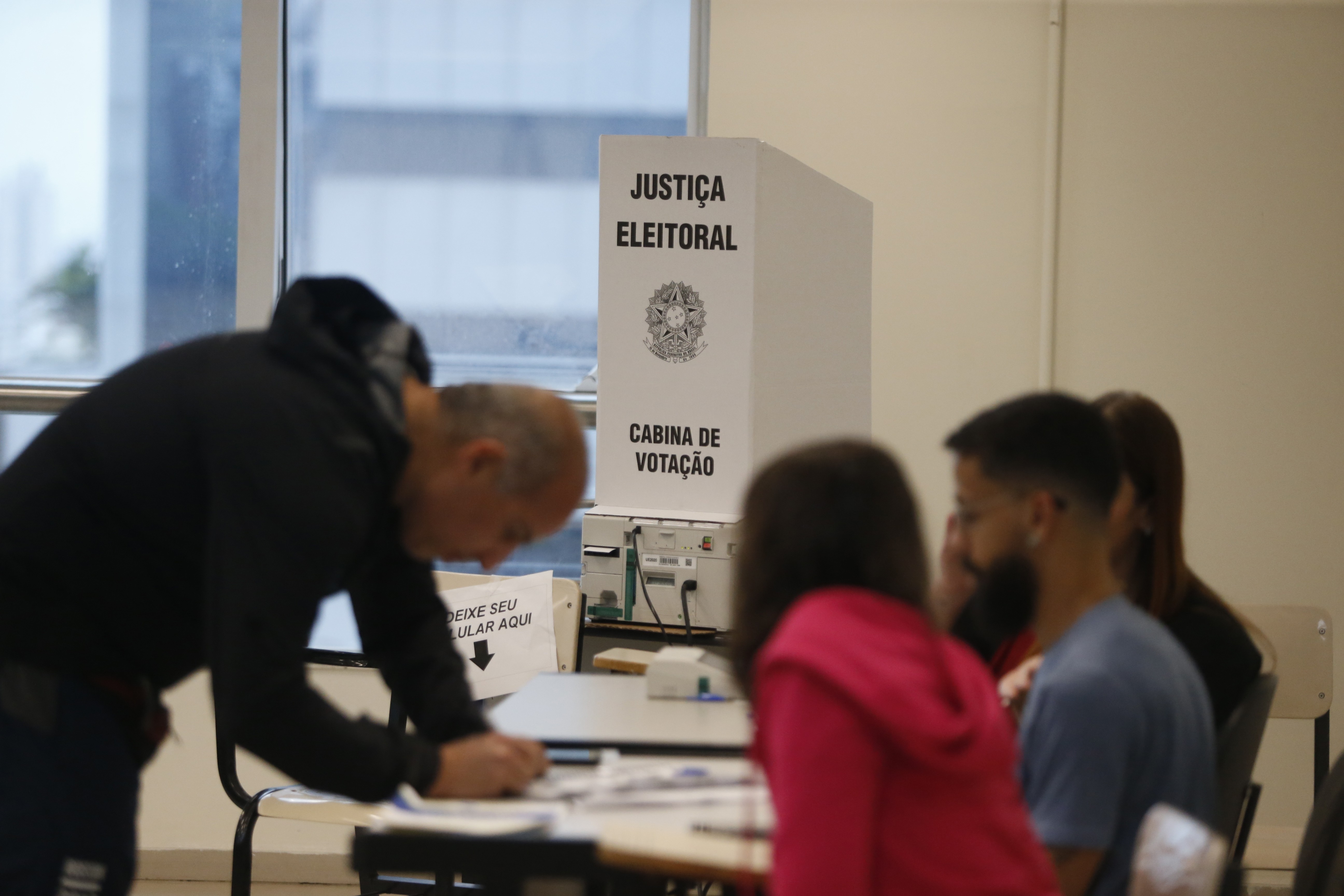The Edge discusses U2's new album, announces Larry Mullen Jr.'s return, and talks about a show in Rio: 'We would be honored'
In an exclusive interview with O GLOBO, the guitarist says the band is in a 'honeymoon phase' and that 'How to dismantle an atomic bomb' remains as political and relevant as it was 20 years ago U2 released a reissue of their 2004 album, “How to Dismantle an Atomic Bomb,” on streaming platforms yesterday, exactly 20 years after its initial release. The reissue includes ten additional tracks from demo recordings, set to be compiled next week in a "shadow album," titled “How to Re-Assemble an Atomic Bomb.” In 2025: Rio's Book Biennial will be revamped, featuring new attractions and even a literary Ferris wheel; discover the details G20 Legacy: The Museum of Modern Art to reopen to the public on December 1st with exhibition and guided tours The exclusive interview with O GLOBO and guitarist The Edge (born David Howell Evans, 63) was meant to discuss these albums. However, there was a pressing question for Brazil: what about Rio's mayor Eduardo Paes' promise to bring the band for a free concert on Copacabana Beach if re-elected (which he was), scheduled for next May? — Wow, this is the first I'm hearing of it, so... I don't know! I have no idea if we could make it happen, but we'd be honored to be invited because we love Rio, we love Brazil, and that would be an incredible place! — the Irishman exclaims. Last Friday (22), after the article about the band's potential visit was published on O GLOBO's website, the mayor shared the text and posted on his social media: “There will be time for everyone in Rio!” The Edge recalls the “Vertigo” tour in 2006, when they performed in São Paulo, including a prior visit to Bahia with lead singer Bono. — We rented a house in Salvador and went to the carnival with Gilberto Gil and Quincy Jones, whom we just lost (the American producer passed away on the 3rd of this month). At one point, one of the parade floats kind of stopped in front of us, and the band started playing “Vertigo.” I think Gil set it up. They tossed us the microphone to sing along, and it was incredible. The Edge performs with U2 in Oklahoma, USA Shane Bevel/The New York Times New album in a ‘honeymoon’ phase According to the guitarist, “the next thing you'll hear about from U2 is a new studio album, after which we'll see what the tour will be like.” That's what he hopes, though, since with the band, “there's never 100% certainty”: — We spent a few weeks in the studio playing with Larry (Mullen Jr., drummer, who suffered from elbow, knee, and neck injuries that required surgery, keeping him out of U2's recent shows). He's recovering well, taking it easy, one step at a time. We're not asking him to do too much, but I think he's playing really well. And enjoying playing, which is important. The Edge believes the band is in a “honeymoon phase”: — We are producing material without having to think about deadlines, exploring possibilities, working with different collaborators under the guidance of Jacknife Lee, a producer we've worked with for some time. Among these explorations is the regional music of their country. The Edge highlights that the group has been recording with traditional Irish musicians, such as Cormac Begley (concertina), Colm Mac Con Iomaire (fiddle), and Dermot Sheedy (on the bodhrán, an Irish percussion instrument similar to a tambourine). — Since albums like “October” (1981) and “War” (1983), we haven't really looked at the Irish influence. Since then, we've gained an outside perspective and become more aware of the uniqueness of Irish music — he explains. — Now, it seems like a new place for us to go. It could yield a U2 album, a side project, like Passengers (with producer Brian Eno, with whom they recorded “Original Soundtracks 1” in 1995)... We're not thinking too much about where it will lead. Memories of a vertigo The guitarist vividly remembers the times when they composed and recorded “How to Dismantle an Atomic Bomb,” a powerful album that featured hits like “Vertigo” and “City of Blinding Lights.” — We were all going through tough times. Bono had just lost his father. I was starting a new family, and one of my children was facing a severe health crisis. The world was also in crisis with the Iraq War and all the talk about weapons of mass destruction. All kinds of atomic bombs were going off in our lives — he reflects. — Strangely, we managed to put all that into the music. The lyrics and themes of this album are very political and broad but also extremely personal. To this day, anyone who listens to “Vertigo” is often puzzled by the absurd time count in Spanish (“uno, dos, tres... catorce!”) in its opening. — This song had an initial version called “Native Son,” very powerful but a bit too serious. — The Edge shares. — We recorded the track again with (producer) Steve Lillywhite, and Bono came up with new melodic ideas. At one point, we were really considering recording it with lyrics entirely in Spanish. One of the titles we considered for the song was “Sopa de Tiburón” (“Shark S
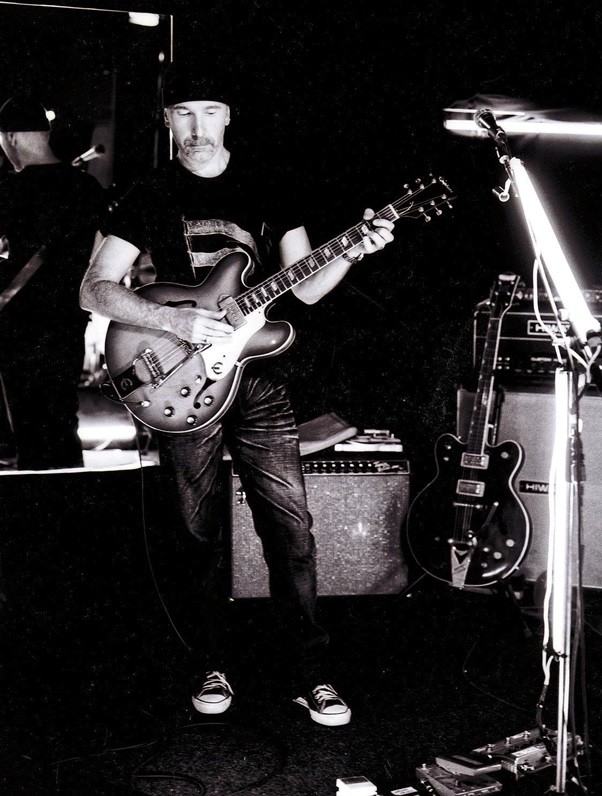

In an exclusive interview with O GLOBO, the guitarist says the band is in a 'honeymoon phase' and that 'How to dismantle an atomic bomb' remains as political and relevant as it was 20 years ago U2 released a reissue of their 2004 album, “How to Dismantle an Atomic Bomb,” on streaming platforms yesterday, exactly 20 years after its initial release. The reissue includes ten additional tracks from demo recordings, set to be compiled next week in a "shadow album," titled “How to Re-Assemble an Atomic Bomb.” In 2025: Rio's Book Biennial will be revamped, featuring new attractions and even a literary Ferris wheel; discover the details G20 Legacy: The Museum of Modern Art to reopen to the public on December 1st with exhibition and guided tours The exclusive interview with O GLOBO and guitarist The Edge (born David Howell Evans, 63) was meant to discuss these albums. However, there was a pressing question for Brazil: what about Rio's mayor Eduardo Paes' promise to bring the band for a free concert on Copacabana Beach if re-elected (which he was), scheduled for next May? — Wow, this is the first I'm hearing of it, so... I don't know! I have no idea if we could make it happen, but we'd be honored to be invited because we love Rio, we love Brazil, and that would be an incredible place! — the Irishman exclaims. Last Friday (22), after the article about the band's potential visit was published on O GLOBO's website, the mayor shared the text and posted on his social media: “There will be time for everyone in Rio!” The Edge recalls the “Vertigo” tour in 2006, when they performed in São Paulo, including a prior visit to Bahia with lead singer Bono. — We rented a house in Salvador and went to the carnival with Gilberto Gil and Quincy Jones, whom we just lost (the American producer passed away on the 3rd of this month). At one point, one of the parade floats kind of stopped in front of us, and the band started playing “Vertigo.” I think Gil set it up. They tossed us the microphone to sing along, and it was incredible. The Edge performs with U2 in Oklahoma, USA Shane Bevel/The New York Times New album in a ‘honeymoon’ phase According to the guitarist, “the next thing you'll hear about from U2 is a new studio album, after which we'll see what the tour will be like.” That's what he hopes, though, since with the band, “there's never 100% certainty”: — We spent a few weeks in the studio playing with Larry (Mullen Jr., drummer, who suffered from elbow, knee, and neck injuries that required surgery, keeping him out of U2's recent shows). He's recovering well, taking it easy, one step at a time. We're not asking him to do too much, but I think he's playing really well. And enjoying playing, which is important. The Edge believes the band is in a “honeymoon phase”: — We are producing material without having to think about deadlines, exploring possibilities, working with different collaborators under the guidance of Jacknife Lee, a producer we've worked with for some time. Among these explorations is the regional music of their country. The Edge highlights that the group has been recording with traditional Irish musicians, such as Cormac Begley (concertina), Colm Mac Con Iomaire (fiddle), and Dermot Sheedy (on the bodhrán, an Irish percussion instrument similar to a tambourine). — Since albums like “October” (1981) and “War” (1983), we haven't really looked at the Irish influence. Since then, we've gained an outside perspective and become more aware of the uniqueness of Irish music — he explains. — Now, it seems like a new place for us to go. It could yield a U2 album, a side project, like Passengers (with producer Brian Eno, with whom they recorded “Original Soundtracks 1” in 1995)... We're not thinking too much about where it will lead. Memories of a vertigo The guitarist vividly remembers the times when they composed and recorded “How to Dismantle an Atomic Bomb,” a powerful album that featured hits like “Vertigo” and “City of Blinding Lights.” — We were all going through tough times. Bono had just lost his father. I was starting a new family, and one of my children was facing a severe health crisis. The world was also in crisis with the Iraq War and all the talk about weapons of mass destruction. All kinds of atomic bombs were going off in our lives — he reflects. — Strangely, we managed to put all that into the music. The lyrics and themes of this album are very political and broad but also extremely personal. To this day, anyone who listens to “Vertigo” is often puzzled by the absurd time count in Spanish (“uno, dos, tres... catorce!”) in its opening. — This song had an initial version called “Native Son,” very powerful but a bit too serious. — The Edge shares. — We recorded the track again with (producer) Steve Lillywhite, and Bono came up with new melodic ideas. At one point, we were really considering recording it with lyrics entirely in Spanish. One of the titles we considered for the song was “Sopa de Tiburón” (“Shark Soup”). Obviously, we knew it was very poor Spanish. So we made “Vertigo” and kept a trace of our experiment in the introduction. U2 performs at Las Vegas Sphere Stufish Entertainment Architects ‘For the first time, I saw a U2 show’ Occupied with shows at the innovative Sphere in Las Vegas (a massive globe-shaped venue wrapped in over a million LEDs), U2 almost didn't have time to prepare extra material for the reissue of “How to Dismantle an Atomic Bomb.” Back home in Dublin, The Edge sifted through his collection for demo recordings for the album and began “finding gems.” He then called Bono and said: “Look, I know it might take some work, but listen to this!” The singer listened and got excited. In six weeks, he wrote the missing lyrics and recorded the vocals while Edge added guitars, resulting in tracks like “Happiness,” “Country Mile,” and “Luckiest Man in the World.” — The most incredible thing and the reason I got so excited was realizing that in the lyrics, the themes from 2004, in response to the Iraq War, suddenly seemed so relevant to what's happening now, with the wars in Ukraine and the Middle East — he says. — It's sad that we're seeing a replay of that old movie. While the band rehearses, the Sphere now hosts screenings of “V-U2,” an immersive concert film recorded there and directed by The Edge with his wife, filmmaker Morleigh Steinberg. — It really is an immersive experience. You go, sit in your seat, and the show begins. And then you have to keep reminding yourself that it's not a real live performance because everything is recreated with great precision. For the first time, I managed to see a U2 show! And after all these years, I'm still doing well — the guitarist jokes. U2 dedicates 'In the Name of Love' to peace between Israel and Palestine Reproduction Another energy Speaking about his instrument, The Edge says the guitar remains vital to U2 and pop music. — Bono and Adam (Clay, U2's bassist) have been urging me to innovate on the guitar for the new album. I feel there's a resurgence of the guitar, and we'd love to be part of it if we're invited to the party (laughs) — he says. — I still believe the guitar is eloquent, capable of a transfer of energy that few instruments achieve. I'm excited about current guitar music, and much of it comes from girls, which is wonderful. The guitar has undergone a beautiful form of democratization. The translation of this text into english was carried out by Project Irineu, O GLOBO's initiative to develop artificial intelligence tools. Here is the link to the original report.
Qual é a sua reação?







